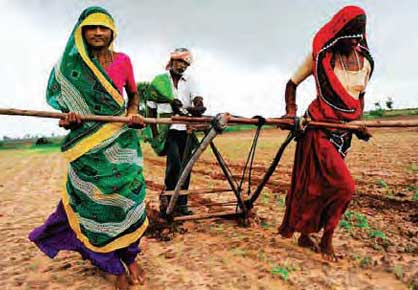
CORPORATE CITIZEN CLAPS FOR BHAVISH AGGARWAL, CO-FOUNDER AND CEO, OLA CABS, FOR HIS PLEDGE TO BUILD AN ALL-WOMEN ENTERPRISE, WITH AN ESTIMATED WORKFORCE OF 10,000 WOMEN
 Bhavish Aggarwal
Bhavish AggarwalThe new women-led electric two-wheeler manufacturing plant, dubbed as the Futurefactory, is spread across 500 acres in Krishnagiri district of Tamil Nadu (TN). The plant will kick-start by manufacturing one-crore units annually, as Ola’s ambitious proposal is to build around 10 million two-wheelers every year or around 15% of the e-scooters of the world by 2022. Putting women into the driving seat, Aggarwal said that the TN factory will be the largest all-women run factory globally. To facilitate this goal, the first group of women workers have begun operating at the plant to stay in line with Ola’s futuristic goal of manufacturing electric vehicles variants including three-wheelers and cars. The company has invested considerably in training and upskilling of its women employees into core manufacturing skills, enabling them to become more equipped in the entire production of the vehicles at the plant. With women under-represented in the manufacturing sector which remains the lowest at a mere 12%, Ola’s attempt is a call for India to focus on upskilling and generating employment for women in the sector. Aggarwal believes that India’s GDP would increase by 27% if women are given equal importance in the labour workforce. With TCS, Infosys, Wipro, and HCL significantly increasing the number of women in their workforce including initiative programmes to help women re-enter the workforce, rings in a step towards workforce inclusivity. Saundarya Rajesh, founder and president, Avtar Group, a consultancy firm focused on workforce diversity, said that organisations should aim to become women-centric with at least 40% women in their workforce and Ola seems to have taken more than a nudge in that direction.
CORPORATE CITIZEN SLAPS THE RECENT PREDISPOSITION OF WOMEN FARMERS LOSING JOBS, EARNINGS, AND SAVINGS DESPITE THE SEEMINGLY INCREASE IN AGRICULTURAL GROWTH

Their current survival battle has been largely attributed to reverse migration post the multiple pandemic-led lockdowns. The preference for men getting paid-employment has relegated women farm workers as the unpaid labour force. Despite 60% of employed women in India engaged in agriculture, as per the 2019-20 Periodic Labour Force Survey, limited opportunities in the villages, have forced women out of employment. “Returnee migrants certainly affected the employment opportunities of women, more so for those who depended entirely on agriculture for wage labour,” said Seema Kulkarni, a member of the national facilitation team at Mahila Kisan Adhikar Manch (MAKAAM), an informal forum that focuses on the rights of women farmers. Single women bore the maximum brunt and became more vulnerable due to the reverse migration crisis. The reversal also meant that families did not need to hire outside labour as they had enough cultivators within their own families which further reduced the availability of farm jobs. Similar trends have been reported by IndiaSpend and Khabar Lahariya on Ayodhya and Mahoba in Uttar Pradesh, indicating the increased availability of employable men in villages leading to a drop in demand for women farm workers. An Oxfam study conducted between June and September 2020 stated that more than 90% of the women surveyed across five districts of Bihar, lost access to the market, as they could not sell their produce due to lack of transportation. A May-2020 MAKAAM study resonated that nearly a quarter of the 711 women farmers surveyed could not afford the high-cost of transport. Besides, 36% of the 352 women who had taken loans in the previous year were unable to repay them. With savings drying up and with little to no income, the lack of access to credit has made it hard for women farmers to invest back into livestock or farming. “Women work the hardest in our country and I use the word ‘work’ very deliberately, where I distinguish work from employment. They’re doing great work but they are not fruitfully employed,” said Mahesh Vyas, CEO, CMIE. It is high time that this universal truth finds a changeover to a more women-centric labour force inclusivity–rural as well as urban.